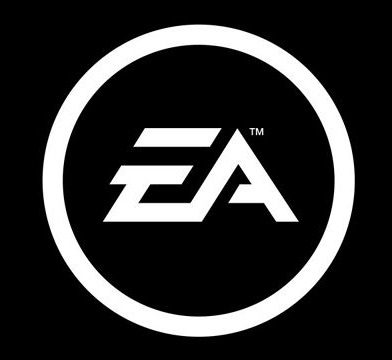Electronic Arts Gambling
Posted By admin On 01/04/22- Log in - EA - Electronic Arts.
- The games industry is being pushed by Germany and Electronic Arts in a direction that, if successful, would mean the mass de-platforming of right-wingers and free speech in gaming. The Anti-Defamation League and the big names in Silicon Valley have already signed on to similar projects in the US.

British video game company Codemasters has accepted a £945m bid from its bigger Californian rival Electronic Arts (EA), gatecrashing a planned deal between Codemasters and US giant Take-Two. After a similar lawsuit was filed in California, video game publisher Electronic Arts (EA) is facing more legal action in the form of a class-action lawsuit filed in Canada. The joint Plaintiffs, Mark Sutherland and Shawn Moore, assert that the Criminal Code of Canada prohibits unlawful gaming, betting, lotteries, and games of chance and that a.
:no_upscale()/cdn.vox-cdn.com/uploads/chorus_image/image/64057256/jbareham_190607_0906_eastock_0001.0.jpg)

Share this article
A Netherlands District Court this week ruled against Electronic Arts in a case over FIFA loot boxes, allowing the Netherlands Gambling Authority (Kansspelautoriteit, or Ksa) to proceed in fining the publisher €10 million for violating the country's Betting and Gaming Act.
'The Ksa believes it is crucial to shield vulnerable groups, such as minors, from exposure to gambling,' the regulator explained. 'For that reason, the Ksa supports a strict separation between gaming and gambling. Gamers are often young and therefore particularly susceptible to developing an addiction. As such, gambling elements have no place in games.'
The Ksa informed developers in April of 2018 that it considered loot boxes violations of the Betting and Gaming Act, giving them eight weeks to make their games compliant.

The EA fine was originally imposed last October, but EA contested both the fine and the Ksa's desire to reveal them to the public. The three-judge panel ruled against the publisher on both fronts, permitting the Ksa to levy the maximum allowable fine of €5 million to Electronic Arts and a second maximum fine to Electronic Arts Swiss Sàrl, and to announce them as well.
According to the judgment, EA argued that FIFA loot boxes would not count as gambling under the Betting and Gaming Act because FIFA Ultimate Team packs (loot boxes) don't offer items of value because they cannot be directly converted into money, that FIFA is inherently a game of skill rather than chance, and that there is no scientific evidence linking the opening of Ultimate Team packs to gambling addiction.
Electronic Arts Gaming
The court was unswayed by those arguments, noting that there are ways for people to profit from Ultimate Team cards that can be valued at nearly €2,000, and that people can ignore the proper FIFA gameplay and 'play' the Ultimate Team packs as their own sort of game.
As for the lack of scientific proof, the judges ruled it not necessary that every new game of chance be proven to cause problems, because the Betting and Gaming Act is based on the assumption that games of chance carry with them a risk of gambling addiction. They also pointed to an increasing body of scientific research and experts warning about loot boxes, as well as reports made to the Ksa by individuals who had been affected by them.
EA also argued that the Ksa's decision forbidding FIFA Ultimate Team packs in their prior form violated EA rights to property and freedom of expression.
In response to the property defense, the judges noted that the Ksa gave EA an opportunity to amend the FIFA games to fix the issue without any sort of sanction or fine, but the publisher neglected to do so. They added that EA itself still owns the game, and has control over how it decides to make it comply with the law.

As for the Ksa censoring the creativity of FIFA's game designers, the court ruled again that the Betting and Gaming Act's existence assumes that the interests of society to regulate games of chance outweigh the interest to preserve people's freedom to express themselves through games of chance.
Finally, EA argued that disclosing the fine to the public would disproportionately harm its business and hurt its reputation, but the court ruled that the public interest in announcing the fines and warning the public about unlawful commercial practices outweighed EA's interest in preserving its reputation.
As for where upset FIFA players in the Netherlands can direct complaints, the Ksa advised them to take it up with EA.
'The game's providers are the parties that decided to include a gambling game within the game, thereby breaking the law,' it said. 'The Ksa has pointed this out to Electronic Arts Inc. and Electronic Arts Swiss Sàrl repeatedly. Electronic Arts Inc. and Electronic Arts Swiss Sàrl are therefore itself responsible for changing the game such that it is no longer in contravention of the law. How exactly it accomplishes this is at their discretion.'
EA has six weeks to appeal the decision.
Electronic Arts Gambling
Update: An EA representative has provided the following statement to GamesIndustry.biz: 'Players all over the world have enjoyed FIFA and the FIFA Ultimate Team mode for many years and as such, we are disappointed by this decision and what it may mean for our Dutch community. We do not believe that our products and services violate gambling laws in any way. We are appealing this decision and we seek to avoid a situation impacting the ability of Dutch players to fully experience and enjoy FIFA Ultimate Team.
Electronic Arts Gaming System
'Electronic Arts is deeply committed to positive play. We seek to bring choice, fairness, value and fun to all our players in all of our games. We remain open to discussions with the Netherlands Gambling Authority and other stakeholders to understand and explore solutions to address any concerns.'